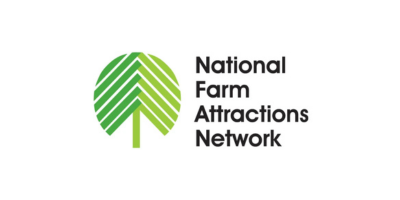From Spirits to Berries: How Farms Diversified and Thrived
)
Diversification has become a lifeline for many UK farms, offering resilience, fresh income streams, and new ways of connecting with communities. From strawberries to spirits, two family-run farms in the Northwest show just how creative thinking can transform farming businesses while keeping their agricultural roots intact.
Kenyon Hall Farm: Pioneering pick-your-own produce
Back in 1978, farmer Tod Bulmer decided to take a chance. With a young family to support, he wanted to “gee up the business” and boost turnover at Kenyon Hall Farm, near Warrington. Until then, the farm had been a traditional mixed holding with crops and cattle. But Tod saw an opportunity, and planted two acres of strawberries, launching one of the UK’s earliest pick-your-own schemes.
The idea was a gamble. “It was a massive risk and it was something outside my knowledge,” Tod recalled. “But it was something we had the enthusiasm to give a go to.” His parents and workers were sceptical but supportive, and their leap of faith quickly bore fruit. Families loved the wholesome activity of picking strawberries, reconnecting with their food and teaching children where it came from.
From those first two acres, the farm has expanded to more than 500 acres, offering seasonal attractions like pumpkin picking, a maize maze, and a farm shop alongside its traditional crops of barley, oats, wheat, and potatoes. As Tod explains, diversification required hard work and a change of focus: “To begin with, we made sure pick-your-own didn’t interfere with the rest of the farm. By the year 2000, it was the other way around, the main farming couldn’t interfere with the diversified bits.”
For the Bulmer family, diversification wasn’t just about survival, it was about creating something that built stronger connections with the public while allowing the farm to control its margins. As Tod admits: “It’s a shame farmers can’t just do the trade, but the opportunity to diversify gives us more control.”
Lower Barker Farm: Distilling tradition into innovation
Just under 50 miles away, in the Forest of Bowland, another farming family has taken diversification in a different direction. At Lower Barker Farm in Preston, the Billington family continue to milk a Holstein herd of 450 cows, but they’ve also built a thriving spirits brand: Wild Fox Distillery.
The inspiration came from something simple, Ann and Andrew Billington’s love of a gin and tonic after milking. Lizzie Billington, their granddaughter, began experimenting in her kitchen with a table-top still, testing how the farm’s natural botanicals could be used in spirits. “The flavour you can get from the common weed is unbelievable,” she recalls. “I knew we could create a cracking product.”
That kitchen experiment has grown into a successful business, with Wild Fox Distillery gaining recognition while staying rooted in its farming heritage. As Lizzie explains: “The dairy farming remains at the heart of what we do, it’s never changed, and we’re really proud of that. This farm was purchased by my family in 1932, and my brother is now fourth generation, going from strength to strength.”
For Lizzie, diversification doesn’t mean abandoning farming, it means adding more to the farm. But she’s also clear that diversification isn’t a one-size-fits-all solution: “It’s not the answer to every challenge farmer’s face. What matters most is keeping British farming strong. We produce the best food there is, and with the right support from the public and government, we can flourish and thrive.”
Lessons in resilience
The stories of Kenyon Hall Farm and Lower Barker Farm highlight the two sides of diversification. For some, like the Bulmers, it’s about opening the gates to the public, creating experiences that strengthen communities and build new revenue. For others, like the Billingtons, it’s about innovation, turning raw farm resources into premium products for a growing market.
What both share is the determination to adapt, protect their family legacies, and future-proof their businesses against the uncertainties of modern farming. As these examples show, diversification is more than just survival, it’s an opportunity to celebrate farming heritage while embracing change.
Join us at the Farm Business Innovation, 5-6 November at the NEC, Birmingham, to explore how farms across the UK are turning challenges into opportunities, and discover how you can unlock the hidden potential of your land, buildings, and skills.






